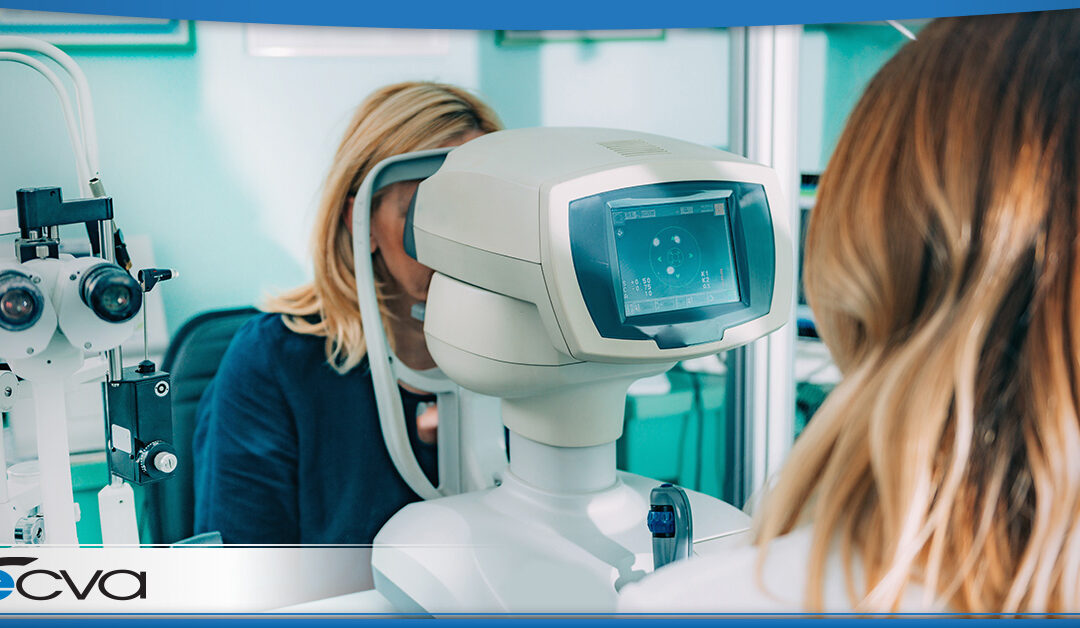Maintaining the health of your eyes is essential. Otherwise, a medical condition could cause irreparable damage, causing you to lose visual acuity or your ability to see.
If you suffer from diabetes, you could be at risk for diabetic retinopathy, a harmful condition that can rob you of your vision. Here’s what you need to know about this damaging eye disease.
What is Diabetic Retinopathy?
Diabetic retinopathy, in the simplest terms, is an eye disease that can occur in people who have diabetes and rob them of their vision. High blood sugar levels (blood glucose levels) can damage the blood vessels in the retina. Damaged blood vessels can lead to swelling and even leaking. In some cases, the blood vessels close, preventing blood from flowing properly in the eye. In both of those cases, your vision can be compromised, leading to diminished clarity or partial or full blindness.
At times, diabetic retinopathy can lead to the growth of new blood vessels on the retina. When this occurs, damage to your vision is possible, including falling acuity and even varying degrees of blindness.
Those in the initial stages of diabetic retinopathy may not know they have the condition. Often, the earliest symptoms can only be spotted during a thorough eye exam. However, noticeable symptoms do eventually occur, including blurriness, an increased number of floaters, vision changes, dark or black spots in the field of vision, declining night vision, and colors looking washed out or faded.
How is Diabetic Retinopathy Diagnosed?
First, your ophthalmologist will take a detailed medical history. As they proceed, they will ask you about any current medical conditions and whether you are experiencing any symptoms that could make you prone to diabetic retinopathy or indicate you may have the condition.
During an exam, the ophthalmologist uses drops to dilate your eyes, causing your pupils to widen. Then, they can examine your eye with a special lens, allowing them to look for signs of diabetic retinopathy.
In some cases, your ophthalmologist may perform a fluorescein angiography. A special dye is injected into a vein, typically in your arm. Then, once the dye reaches the blood vessels in your eye, images are captured with a special camera, letting your ophthalmologist to see any blockages, leaks, or abnormal blood vessel growth.
Optical coherence tomography (OCT) is an alternative approach for closely examining the retina. A specialized machine scans the eye, providing highly detailed images that can help your ophthalmologist spot signs of diabetic retinopathy.
How is Diabetic Retinopathy Treated?
If your ophthalmologist diagnoses you with diabetic retinopathy, they may recommend certain treatments based on how the condition presents in your eyes. Typically, they will discuss blood sugar control options that can help slow the condition or even restore some of your vision.
They may also recommend an anti-VEGF medication, a prescription designed the limit swelling in the macula of the eye and potentially stop or reverse vision loss, or steroids, which also reduce inflammation. These medications are administered by a medical professional as it has to be given as an injection in the eye.
Laser surgery is another potential treatment. The lasers can seal leaking blood vessels and reduce swelling. They can also shrink intrusive blood vessels and potentially prevent them from recurring.
In more advanced cases, vitrectomy – a surgical procedure that removes blood from leaking vessels and vitreous gel toward the back of the eye – allows light to properly pass through the retina. This can help improve your vision and slow the progression of the condition.
If you are concerned about the health of your eyes or have not had a recent checkup, schedule an appointment at your nearest ECVA location today. Our skilled ophthalmologists, optometrists, and opticians work diligently to maintain the health of your eyes and to correct vision issues, ensuring your eyes remain in the best shape possible and you can see clearly.
BOOK AN APPOINTMENT TODAY!
If you have further questions or would like to schedule an appointment with one of the Ophthalmologists at Eye Care and Vision Associates please call 716.631-EYES (3937) or visit www.ecvaeyecare.com .


